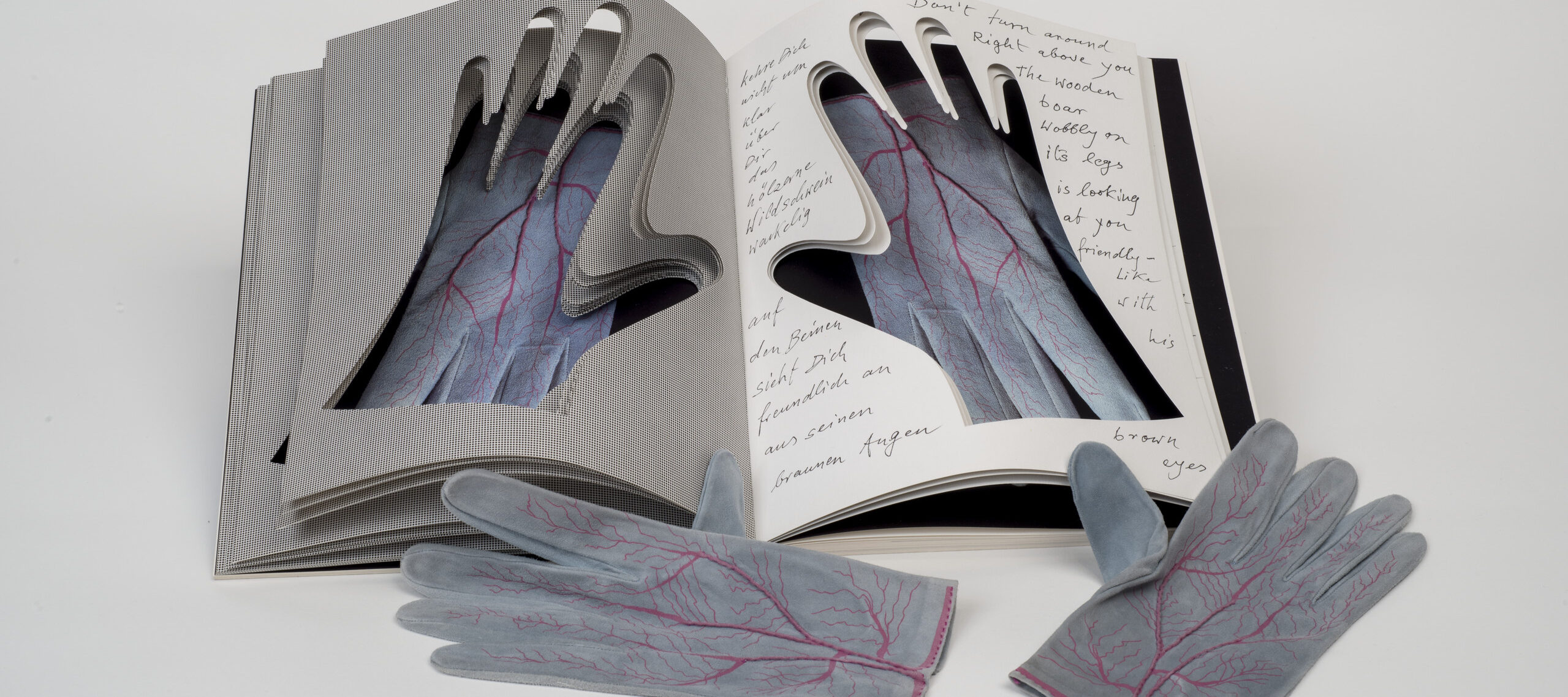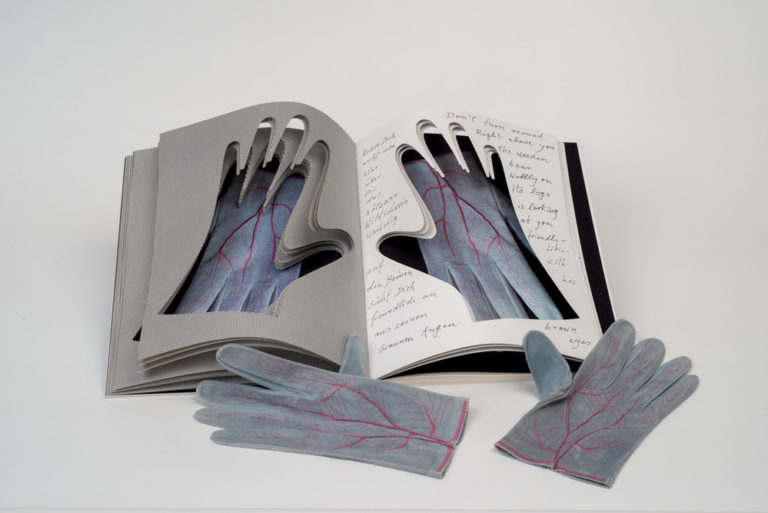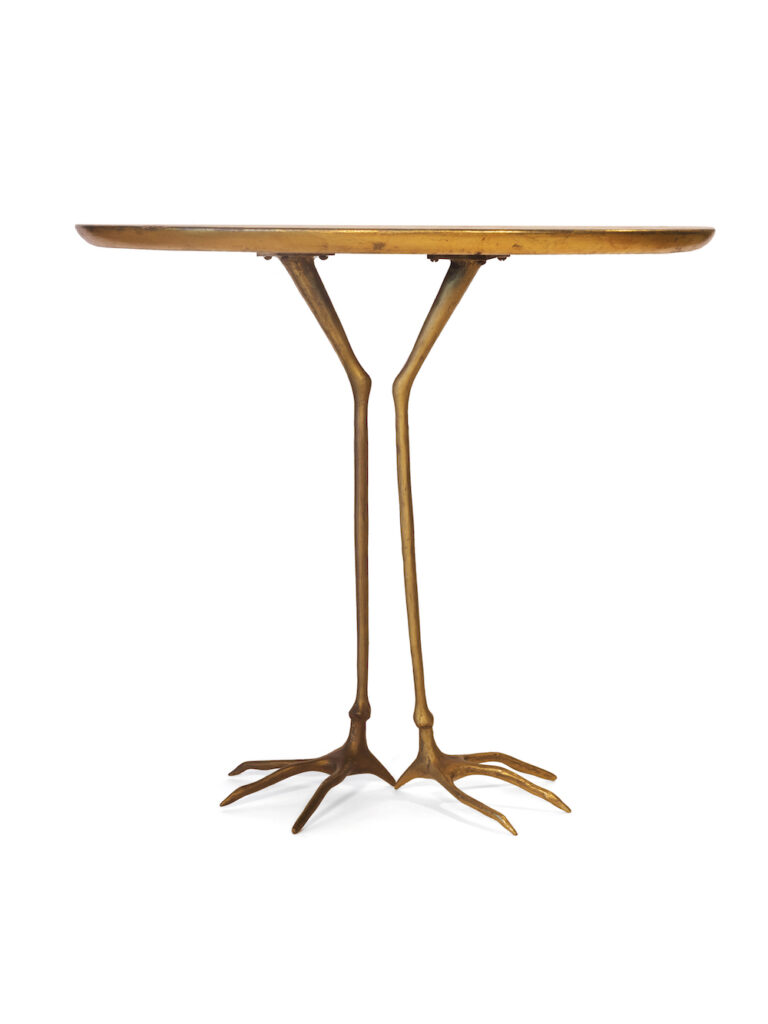Surrealist artist Meret Oppenheim (1913–1985) is best known for the fur-lined teacup and saucer she made in 1936, but it represents just one facet of her provocative work. During her prolific career, she created sculpture, paintings, and drawings that explored themes of sensuality and desire, friendship and love, nature and culture, and reality and imagination.
This exhibition explores friendship as a source of inspiration and support. Inspired by the friendship between two 18th-century poets, Bettine Brentano and Karoline von Günderode, Oppenheim created paintings, prints, and poems dedicated to the two women, some of which are featured in the exhibition.
Many of the works on view are part of a recent donation to NMWA made by Vassar College art librarian Thomas Hill in honor of his friendship with late librarian of the Walker Art Center Rosemary Furtak. Tender Friendships includes Oppenheim’s witty Table with Bird’s Feet (1973), her Schoolgirl’s Notebook (1973), prints, photographs, and letters from the artist.
Oppenheim worked in many styles and mediums, including poetry and illustration, as depicted in the artist’s books Sansibar (1981) and Caroline (1985)—both of which are showcased in the exhibition.

Meret Oppenheim, Table with Bird’s Feet, 1983, Top: wood, carved and gold-plated; feet: bronze, 25 1/2 x 27 1/2 x 19 3/4 in., Private collection; © 2014 Artists Rights Society (ARS), New York / ProLitteris, Zurich; Photography by Suzanne Khalil; Image courtesy of Lisa Wenger and Martin A. Bühler, Meret Oppenheim Estate
Exhibition Sponsors
Meret Oppenheim: Tender Friendships is organized by the National Museum of Women in the Arts. The exhibition is made possible by Margaret M. Johnston and the members of NMWA. Further support is provided by the Embassy of Switzerland, Washington, D.C., and the family of Meret Oppenheim.
Exhibition Gallery
The Artist,
Meret Oppenheim
Swiss artist Meret Oppenheim used a range of mediums and styles to explore dualities: sensuality and desire, friendship and love, nature and culture, reality and imagination.


